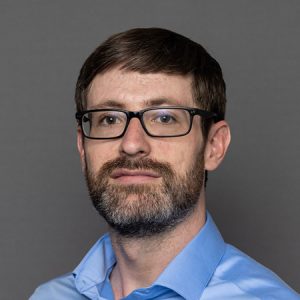Sep. 8, 2025
This is part of a series of Q&As introducing faculty who have joined the College of Health Sciences for the 2025–26 academic year. Meet all of our new faculty members.
Cameron Perrine
Assistant clinical professor, Department of Health Psychology
Tell us about yourself. What is your background?
I completed both my BS in psychology (2013) and my MA in general psychology (2015) degrees at the University of North Florida. I then completed my PhD in clinical psychology at the University of Arkansas in 2023. I recently completed my two-year postdoctoral residency in clinical neuropsychology here at Mizzou, where I currently hold the position of assistant clinical professor within the Department of Health Psychology. I am a licensed psychologist in the state of Missouri, and I work as a clinical neuropsychologist within Mizzou’s Adult Neuropsychology Clinic.
What brought you to Mizzou? To your field?
I was initially exposed to clinical neuropsychology during my fourth year of doctoral training. I was working as an extern at Schmieding Developmental Center, an outpatient pediatric neuropsychology clinic, under the supervision of Dr. Mary Ann Scott, a board-certified pediatric neuropsychologist who also happens to be a Mizzou alum! Dr. Scott’s mentorship and the clinical experiences at Schmieding had such a profound impact on me that I decided to pursue clinical neuropsychology.
Clinical neuropsychology is a specialized field within the applied psychology disciplines (i.e., clinical, counseling and school psychology) with its own set of training guidelines and expectations. A critical training expectation is the completion of a two-year postdoctoral residency program in clinical neuropsychology. This generally requires participating in a match process, where candidates apply to specific training programs of interest. At the end of this process, both applicants and training programs rank-order one another based on perceived goodness-of-fit. Those rank orders are then “matched” together, which is how postdoctoral residents are selected. I was very happy to match here at Mizzou for my residency!
What is your favorite thing about your job?
There are several elements of my work that I love, which makes selecting a single component difficult. My abbreviated list (in no particular order) includes connecting with patients and providing them with a high-impact healthcare service, learning about and discussing brain-behavior relationships with colleagues and mentoring the next generation of neuropsychologists.
What has you excited for this semester?
I am excited to begin working as an independent professional after a lengthy training arc.
What is a fun hobby or activity that you enjoy outside of work?
I enjoy training in Brazilian Jiu-Jitsu three days per week.
What is your hidden talent?
My most useful hidden talent is probably active listening. My most useless hidden talent is probably the ability to play Guitar Hero on expert difficulty.
What is the best piece of advice you’ve ever received, and who gave it to you?
This advice was given to me indirectly by my grandfather. A long time ago, my mother told me a story about a particularly trying moment in her life. She confided in my grandfather, who then ardently responded by saying, “You can’t just give up. You’ve got to keep going.” While this message may appear unremarkable at a glance, it contains a much deeper wisdom regarding the power of tenacity in the face of hardship. I believe that well-focused tenacity can take someone farther than they may initially realize.
